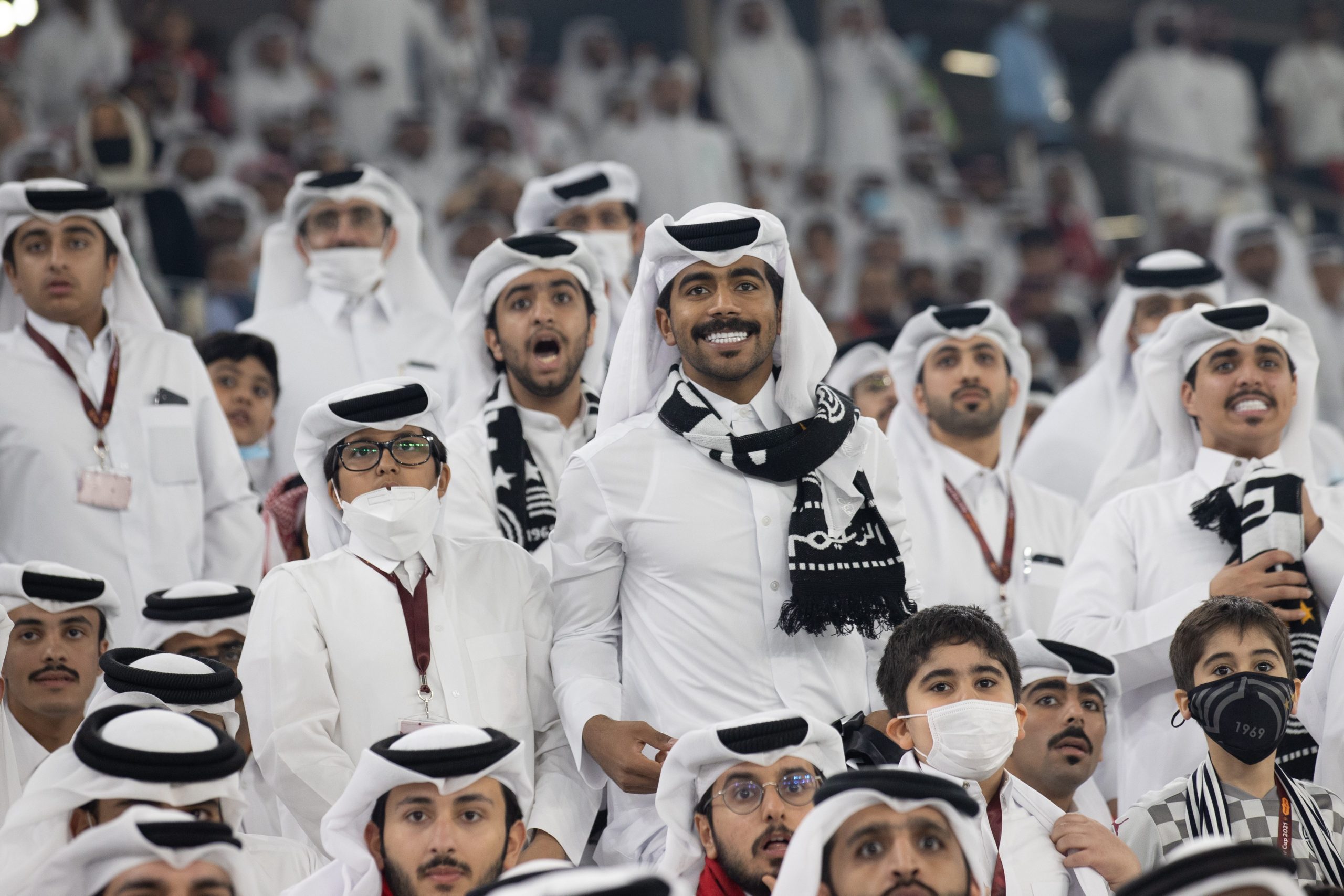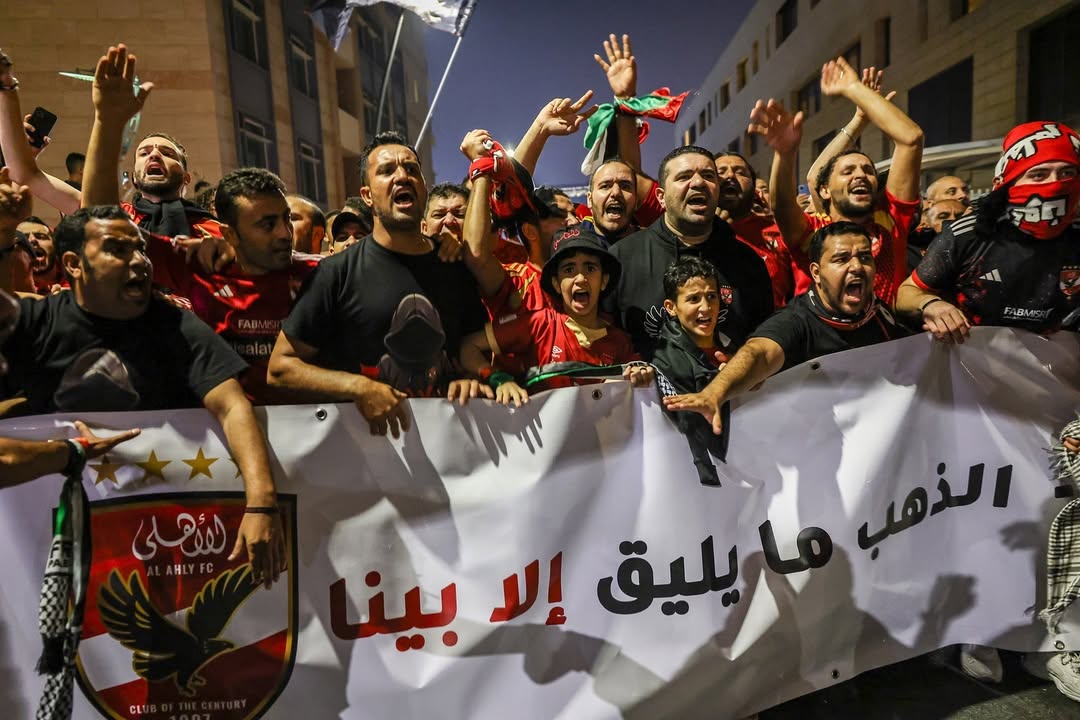Qatar Legacy Ambassadors share their thoughts one year from the major global sporting event.
Next year’s World Cup – the first to be hosted in the region – will be an “incredible” and unforgettable experience for spectators around the globe and will have a major impact on Arab youth across the region, a number of international, regional and local Qatar Legacy Ambassadors said.
Australian football legend, Tim Cahill said the Gulf state has done an “incredible” job ahead of the mega tournament next year.
“We are very fortunate to be here,” Cahill noted at a press conference ahead of the Amir Cup final on Thursday.
The host nation has been undertaking extensive efforts to exceed global standards in terms of infrastructure, facilities and security across the country ahead of the event next year.
“I know that it’s going to be a successful world cup because the infrastructure behind everything has been first-class and the main thing is when you have… the have the FIFA Arab Cup [coming up]..everything that we’ve been preparing for has been amazing during a pandemic and now hopefully coming out of one, so thumbs up from me,” Cahill added.
“I’m really impressed to see the levels of what they’re producing,” the international QLA said.
“I’ve been fortunate enough to have a kick around on some of these stadiums and I’m blown away. Overall, it’s incredible that they can produce this level and it’s going to be really exciting because there’s only 400 days left and we all know that that’s right around the corner,” he added.
The comments on Thursday came just a day ahead of Friday’s Amir Cup final match at Al Thumama Stadium between Al Rayyan and Al Sadd. The exciting battle between the local Qatari rivals marked the inauguration of the sixth FIFA World Cup 2022 venue.
Read also: Ready for a showdown? All you need to know about the Amir Cup final
The 40,000-capacity stadium will also host the FIFA Arab Cup Qatar 2021 next month.
“The biggest thing for me is the level of detail that is going into the training pitches, the facilities, the things that players need. That’s definitely really important because that adds to the performance,” Cahill said.
Qatar will not only be the first to host the FIFA World Cup in the Middle East, but will also be the first ever to host it during November and December – instead of June and July – due to its hot climate.
Like all World Cup stadiums, the most recently inaugurated Al Thumama facility was designed and built by a designated team to offer the most advanced cooling technology. It also boasts a unique white exterior, “which reflects the sun and helps to keep the stadium cool,” experts said.
Speaking at the press conference on Thursday, regional QLA Wael Gomaa said: “I have visited all the stadiums here in Qatar, this reminds me when i was a player I only dreamt to have such an infrastructure.”
For the Egyptian football star, the fact that Qatar is the first Arab nation to host the World Cup is a dream.
“Qatar organising the World Cup was actually a dream come true, no one even dreamt before that an Arab country could organise such a huge event, but now it is a reality,” said.
“I remember the first time I visited Brazil in 2014 and Russia in 2018 – I’ve seen many things but what I’ve seen in Qatar in a short period of time in terms of infrastructure and sports and how they impact people, is a dream come true for us,” he added.

World Cup winner and Brazilian QLA, Cafu said based on his previous World Cup experiences that he “can guarantee that Qatar’s World Cup is going to be different from all the other editions.”
He noted the World Cup being hosted in Qatar makes it “very easy to transport from one stadium to the other – that is why it is gonna be an amazing World Cup.”
Compared with previous host countries, Qatar is the smallest ever nation to bring the World Cup to its shores, meaning the tournament will be the most “compact” to date.
Sixty-four matches over 28 days will take place in close proximity, with the maximum travel distance between stadiums just 75km. One of the major environmental benefits of Qatar 2022 is the elimination of domestic flights during the tournament, the organising Supreme Committee for Delivery & Legacy says on its website.
This also means visitors and international football fans in Qatar will have the advantage of watching more than one match per day without worrying about flight transfers – cutting both costs and emissions.
“Qatar is totally ready for this global event, the infrastructure is completely ready as we witness the opening of the sixth stadium,” Omani footballer and QLA, Ali Al Habsi said.
“We have seen during the coronavirus pandemic that Qatar has organised many events and all proper health measures were in place and respected,” he added.
Is the Qatari national team ready for the World Cup?
The mega tournament will see some 3,000 players from 135 teams competing in the Gulf state, with Qatari national team automatically qualifying to play as the host nation.
“The national team of Qatar has developed a lot and we can see within the competitions they participated in, for example Copa America, where they performed so well and since then they are developing. I’m pretty sure that the Qatari national team playing in stadiums in Qatar will make it more amazing,” Cafu said.
Additionally, Ronald De Boer noted that “the most important thing is that they will be able to show themselves to the world and give all they have.”
“I think there are many people that are working with the Qatari national team and I’ve seen the changes – what Qatar has made in the last decade is incredible,” the former Dutch professional footballer said, referring to the team’s performance.
Meanwhile, with the FIFA Arab Cup 2021 around the corner, Qatari Legacy Ambassador Ahmed Khalil said the upcoming event has fans “excited and eager to see tournaments taking place at the World Cup stadiums.”
Cahill said “the Arab Cup is going to be a good test because the metric is going to be performance, the way the squad plays, seeing how you can compete against some top nations, because you have to dominate this region, then make sure after you can compete against countries like Portugal, ec.
“I think the most important thing is the impact of players that sign on the local talent. Al Rayyan, Al Sadd, Al Duhail are all clubs that are trying to make sure all the teams can produce talents,” Cahill told Doha News.
The FIFA Arab Cup is a chance for Qatar to get regional and international exposure, he added.

“I think the impact is we now have to showcase in the region. You can now see what there is to offer, and then also to excite other regions around, to get involved in the game more, to have more exposure,” he continued.
Qatar’s response to criticism
Speaking of the criticism Qatar has faced since winning the bid to host the World Cup 2022, De Boer said recent calls for boycott and overall criticism against the Gulf state had a “good” impact as it helped authorities face certain issues head on.
“I think if the World Cup wasn’t there no one would maybe even care and put the light on it, but now the whole world is watching Qatar so i think that is only good and what is wrong we have to face it, we have to speak about it,” he said, noting there is no escape from such criticism and “exaggerations” in some places.
“I have seen the willingness, I have seen the roadmap to 2030, the World Cup was not even in the thoughts of Qatari people at that time and that was to be ready for the next generation,” he said referring to Qatar National Vision 2030.
“The World Cup increased the speed. When you go 100 miles an hour you make more mistakes than when you go 20 miles an hour. There have been mistakes but I think they have always been transparent and they are doing everything in the best possible way to tackle this. I’ve seen the change and you can ask, for example, Amnesty International which is a group who is on top of it,” he said of the leading global rights body.
The QLA said “I spoke to them [Amnesty International] and they said we’ve seen the changes made but they are still critical and they have to be about certain things and they are still pushing. I know that Qatar is trying to solve this and this is also part of my role.
“I lived here for seven years with my family. I had a great time and I want to take away a little bit of the misconception about the region because people think as a woman you can’t wear a skirt or you can’t let your hair loose, it is total nonsense of course. People believe what they read sometimes.”
Qatar’s ‘massive role’ for World Cup qualifiers
The Gulf state has been intensifying efforts to ensure its facilities remain accessible for footballers around the world, especially teams qualifying for the World Cup Qatar 2022, during the global Covid-19 health crisis.
“I enjoy sitting here and sharing the narratives of how Qatar is helping my country, Australia, with facilities, training, pitchers, air conditioned stadiums to qualify for the next World Cup,” Cahill said.
Qatar plays a “massive role for many other countries, that’s why we have so many connections with federations. That’s the bit that we forget – is the stuff that happens underneath that nobody sees, you know, and that’s what I like. They can’t play in Australia because of Covid,” he added, noting other nations have also been invited to Qatar to play games.
Follow Doha News on Twitter, Instagram, Facebook and Youtube







